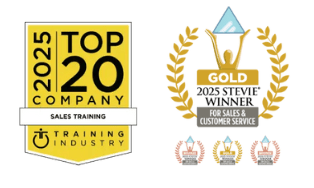So, what does that have to do with selling?
Naturally, we want our investment in our plants to pay off. We water and prune the tomato on the vine that we spent time growing from seed. We regularly tend to the needs of our plants to ensure they grow, flourish, and continue to provide more vegetables and fruits.
Lack of attention enables the weeds to gradually grow and strangle the growth that has so much potential.
In our exciting world of sales, this has a direct parallel. If we do not nurture, tend, and pay attention to our relationships on a regular basis, the weeds of discontent eventually take over our client relationships.
We call this follow up. Selling to a client involves many rewarding, tedious, and painful steps. We all have been there. We work painfully hard to find the people who will meet with us and are interested to hear what we have to say. We prepare thorough research for meetings. Momentum is building; we move on to the next phase and eventually arrive at the promised land of legal and procurement. And then, the purchase order, MSA, and sale!
What typically happens over the next few months? The salesperson moves on to the next opportunity. What important step was missed? The salesperson made their plan; the deal was sealed… so what now?
A critical step was overlooked, which can help build trust with your client, support your product, and often create references for another sale. That involves acting afterward by reaching back out to do a check-in or FOLLOW UP evaluation. How did the process post-sale flow? How well did the implementation team meet the expectations set in the proposal? Did the product deliver on the promises made originally in those meetings along the way? Were the results successful for the business?
While many of the questions seem basic, and truthfully, ones that a salesperson should be keeping a close eye on with the team, it is often lacking. The excitement or rush of reaching back afterward is not as great as the challenge and success of the sale.
Following up helps to create these three key habits for the salesperson:
1) Trust and Integrity: these two words are used in everyday language and company mission statements. To encompass them, a salesperson must define the strength of the person doing the actions and the company represented. These things should never be taken lightly and are foundations for future success with your client.
2) Mitigate Risks: no one likes to deal with a product problem, especially the salesperson who wants to move on. To your customer, the salesperson is the responsible party for the company. Proactively finding out something needs to get fixed and addressing this saves your client relationship for the long haul.
3) Build for Future Sales: the end game is to sell more… possibly to the same client, and if not, then to others. The easier and better sales are those made through a referral. We read referrals before buying products online to ensure good value. Your client can help build your reference listing as the next prospect asks the question, “Can I speak to one of your references?” Boom, you have that happy client ready!
In summary, following up and keeping one’s word is not new. However, it is an essential part of selling that, unfortunately, most salespeople forget, take for granted, or are “too busy” to do. Yet successful people are the ones who do this without thinking… whether at work, home, or in life. That leaves the opportunity to reach back and ask for more later. Making promises or commitments and actually keeping them will create long-term relationships along the way.
As Rick said at the end of the classic 1942 movie Casablanca, “Louis, I think this is the beginning of a beautiful friendship.”
Personal Challenge:
Reach out to your last two sales contacts that you have not spoken with and ask them for an opinion about your product or service. What went well? What could have gone better? Take their responses and act accordingly. Set a date and time with them to follow up and honor the commitment.




